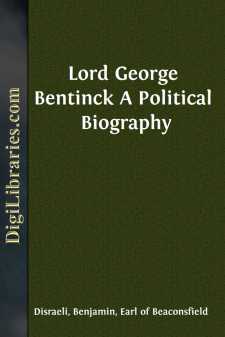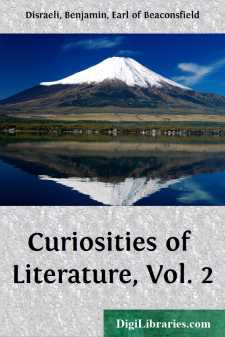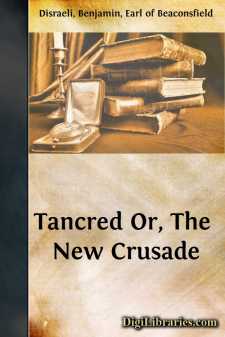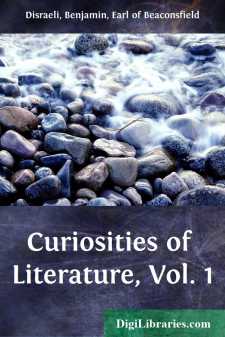Categories
- Antiques & Collectibles 13
- Architecture 36
- Art 48
- Bibles 22
- Biography & Autobiography 813
- Body, Mind & Spirit 142
- Business & Economics 28
- Children's Books 17
- Children's Fiction 14
- Computers 4
- Cooking 94
- Crafts & Hobbies 4
- Drama 346
- Education 46
- Family & Relationships 57
- Fiction 11829
- Games 19
- Gardening 17
- Health & Fitness 34
- History 1377
- House & Home 1
- Humor 147
- Juvenile Fiction 1873
- Juvenile Nonfiction 202
- Language Arts & Disciplines 88
- Law 16
- Literary Collections 686
- Literary Criticism 179
- Mathematics 13
- Medical 41
- Music 40
- Nature 179
- Non-Classifiable 1768
- Performing Arts 7
- Periodicals 1453
- Philosophy 64
- Photography 2
- Poetry 896
- Political Science 203
- Psychology 42
- Reference 154
- Religion 513
- Science 126
- Self-Help 84
- Social Science 81
- Sports & Recreation 34
- Study Aids 3
- Technology & Engineering 59
- Transportation 23
- Travel 463
- True Crime 29
Sort by:
CHAPTER I. Some ten years before the revolt of our American colonies, there was situate in one of our midland counties, on the borders of an extensive forest, an ancient hall that belonged to the Herberts, but which, though ever well preserved, had not until that period been visited by any member of the family, since the exile of the Stuarts. It was an edifice of considerable size, built of grey stone,...
more...
LORD GEORGE BENTINCK A POLITICAL BIOGRAPHY The Man THE political career of Lord George Bentinck was peculiar. He had, to use his own expression, 'sate in eight Parliaments without having taken part in any great debate,' when remarkable events suddenly impelled him to advance and occupy not only a considerable but a leading position in our public affairs. During three years, under...
more...
CHARLES THE FIRST. Of his romantic excursion into Spain for the Infanta, many curious particulars are scattered amongst foreign writers, which display the superstitious prejudices which prevailed on this occasion, and, perhaps, develope the mysterious politics of the courts of Spain and Rome. Cardinal Gaetano, who had long been nuncio in Spain, observes, that the people, accustomed to revere the...
more...
CHAPTER I. A Matter of Importance IN THAT part of the celebrated parish of St. George which is bounded on one side by Piccadilly and on the other by Curzon Street, is a district of a peculiar character. 'Tis cluster of small streets of little houses, frequently intersected by mews, which here are numerous, and sometimes gradually, rather than abruptly, terminating in a ramification of those...
more...
INTRODUCTION. For the fifth time I revise a subject which has occupied my inquiries from early life, with feelings still delightful, and an enthusiasm not wholly diminished. Had not the principle upon which this work is constructed occurred to me in my youth, the materials which illustrate the literary character could never have been brought together. It was in early life that I conceived the idea of...
more...
Book 1 Chapter 1 "I'll take the odds against Caravan." "In poneys?" "Done." And Lord Milford, a young noble, entered in his book the bet which he had just made with Mr Latour, a grey headed member of the Jockey Club. It was the eve of the Derby of 1837. In a vast and golden saloon, that in its decorations would have become, and in its splendour would not have disgraced,...
more...
CHAPTER 1 The sun had set behind the mountains, and the rich plain of Athens was suffused with the violet glow of a Grecian eye. A light breeze rose; the olive-groves awoke from their noonday trance, and rustled with returning animation, and the pennons of the Turkish squadron, that lay at anchor in the harbour of Piræus, twinkled in the lively air. From one gate of the city the women came forth in...
more...
CHAPTER I. Fortune's Favourite GEORGE AUGUSTUS FREDERICK, DUKE OF ST. JAMES, completed his twenty-first year, an event which created almost as great a sensation among the aristocracy of England as the Norman Conquest. A minority of twenty years had converted a family always amongst the wealthiest of Great Britain into one of the richest in Europe. The Duke of St. James possessed estates in the...
more...
CHAPTER 1 There is an island in the Indian Ocean, so unfortunate as not yet to have been visited either by Discovery Ships or Missionary Societies. It is a place where all those things are constantly found which men most desire to see, and with the sight of which they are seldom favoured. It abounds in flowers, and fruit, and sunshine. Lofty mountains, covered with green and mighty forests, except...
more...
ON THE LIFE AND WRITINGS OF MR. DISRAELI. BY HIS SON. The traditionary notion that the life of a man of letters is necessarily deficient in incident, appears to have originated in a misconception of the essential nature of human action. The life of every man is full of incidents, but the incidents are insignificant, because they do not affect his species; and in general the importance of every...
more...











